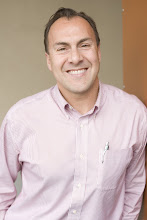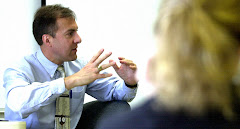The report is in.
A panel of eight people, one of whom is Tom Ridge the former U.S. Homeland Security director, has told the world that Virginia Tech got blind-sided by Seung-Hui Cho.
Medical personnel on the university campus could have paid better attention.
The campus security people could have treated the initial two shootings as a signal to cancel classes and send out alerts.
But that's now.
On that wintry morning, nobody knew how bad things could be.
This was college, after all. Morning classes, commuters scrambling to find parking, residential students deciding whether to cut that morning or skip breakfast to be in their desk on time.
And somebody in the mix was angry. Really angry. Maybe sick, too.
But even if Seung-Hui Cho was a mentally deranged young man, the dark fury within him was something that didn't develop overnight. One of his professors at Tech refused to have him in class because she sensed how sinister the darkness was in this young man.
And though there were danger signs, no one intervened.
The problem was not entirely with Virginia Tech.
The problem is partly a mistaken belief in mass education found within too many colleges and universities in the United States and the Western world. Henry Perkinson spoke of it in "The Imperfect Panacea: American Faith in Education, 1865-1940." So did Lawrence Cremin in his 1965 Horace Mann Lecture.
It's a belief in education apart from a concern for students as people with souls.
Done at the scale found at Virginia Tech, it can leave students lonely and detached — set apart to find their way in a landscape of ego-driven survival. In a Social-Darwinist perspective, this is as it should be. The strong survive, the weak get shoved out of the way. And what emerges are the brightest, the strongest, the most capable of leading our nation (if we believe Plato's theories of scholar-statesmen leaders.)
But this is education that misses the point.
Arthur Chickering, in the 1970s, argued that education must be tied to a sense of identity. A student who doesn't know who he is will become a person chasing a dream. Fulfillment of that dream will be impossible. Educators who ignore a student's relationship to God in the quest to learn are doing that student a grave disservice.
The capstone course in Moral Philosophy, a mainstay of early nineteenth century American higher education (secular and parochial) was important for many reasons. It was often an interaction between the college or university president and senior students — a life-to-life mentoring that, if done well, could have enormous formative benefits for students. It was also a reminder to young people that the world outside academe was one that had implications far beyond the hubris of intellectual achievement. Right and wrong were crucial. At many schools, even state universities, God was acknowledged a judge of what was right or wrong in life.
The separation between the moral life and the life of the mind in American education is an ongoing tragedy of the American experience. Other nations look at the decay of the United States as a world leader and look to our schools as a symptom of the larger crumbling of our foundations.
Subscribe to:
Post Comments (Atom)



No comments:
Post a Comment